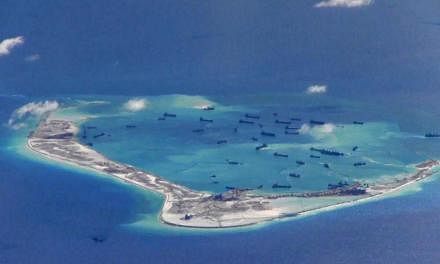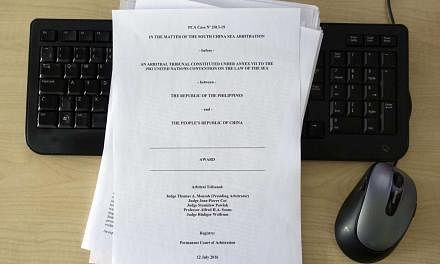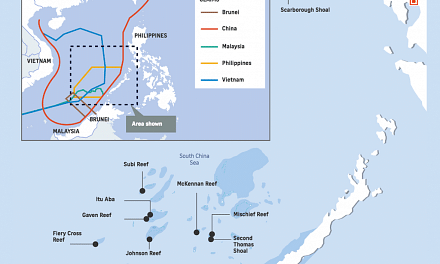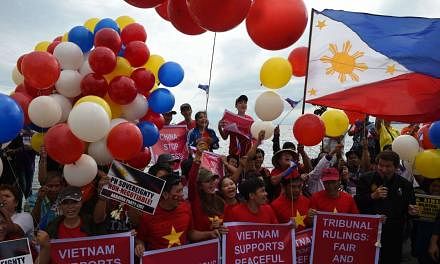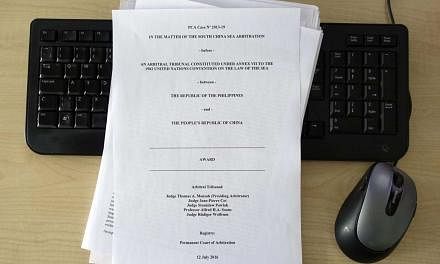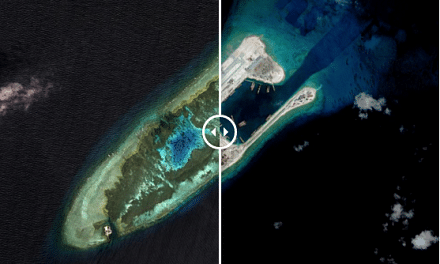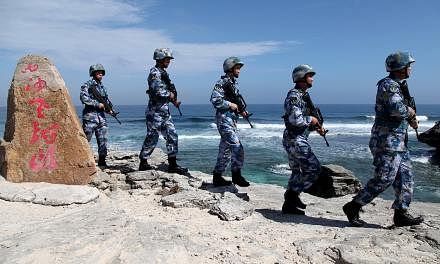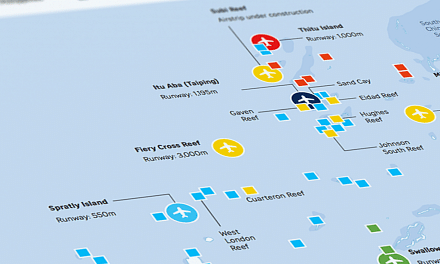JAKARTA (BLOOMBERG) - Indonesia should step up and play a greater leadership role in South-east Asia's management of maritime disputes with China, a group of foreign policy experts and academics said in an open letter.
"We should not forget that an 'independent and active' foreign policy does not give Indonesia a free pass to watch a strategic turmoil unfolding in its environment from the sidelines," said the 19 signatories from institutions across Indonesia.
The academics were responding to an international tribunal's ruling this month rejecting China's claim to exclusive control of most of the South China Sea, which hosts more than $5 trillion in international trade each year. The Philippines, which brought the case against China, is pushing the 10-member Association of Southeast Asian Nations (Asean) to take a firmer stance on the issue.
"We would like to call on President Joko Widodo to fully support and mobilise the entire foreign policy establishment to play a more proactive, consistent, and productive leadership in Asean's management of the South China Sea issue," read the Indonesia statement posted online on Wednesday.
Mr Evan A. Laksmana, a researcher with the Centre for Strategic and International Studies in Jakarta who was the lead signatory, confirmed its authenticity.
NATUNA ISLANDS
Asean nations including the Philippines and Vietnam have overlapping claims in waters where China has reclaimed thousands of acres of land and increased its military presence.
Indonesia is not a claimant but its navy has come into proximity with China's fishing boats and coast guard off the gas-rich Natuna Islands, an area Beijing says are its traditional fishing grounds.
Mr Joko, also known as Jokowi, made a high-profile trip to the islands last month to underscore Indonesia's sovereignty.
A tribunal court said on July 12 that China's efforts to assert control over the South China Sea had "aggravated" tensions, "inflicted irreparable harm" to the environment and "violated" Philippine sovereign rights. China argues the disputes have nothing to do with its relationship with Asean and has dismissed the international ruling.
Those who signed the open letter said they were concerned that Chinese officials had made statements "implying the ruling is somehow tainted."
Dismissing international law and raising regional tensions are "not the kind of responsible behaviour we have come to expect from Indonesia's strategic partner and a respectable member of our regional community."
Asean foreign ministers, who met in Laos this week, failed to take a tough stance on the disputes in their first gathering since the ruling. The statement they issued did not mention China by name, though it noted ministers remained "seriously concerned over recent and ongoing developments" in the area.
Asean operates on consensus and it only takes one member state to disagree for a statement to be torpedoed. A meeting of foreign ministers in China in June ended in confusion after Malaysia released and then retracted a joint Asean statement that cited China for the first time over its behaviour.
That has led several Asean states to publicly call for greater unity for the bloc, amid concerns about its effectiveness going forward.
'DIMMING LIGHTS'
"We are cognizant of Asean's dimming lights and growing marginalization in managing the tension in the South China Sea, which may worsen as the tribunal's ruling could inspire less, not more, confidence in the grouping's centrality," the Indonesian open letter said.
Mr Bilahari Kausikan, a Singaporean ambassador-at-large, said on Monday that the Laos ministerial statement was "weak" and only able to be issued after an "11th-hour change of heart."
He said the maritime disputes had become a divisive issue and there was no clear way out of the impasse, given Cambodia and Laos were seen as siding more with Beijing.
"Asean can only work by consensus and while we have had serious disagreements in the past what we have at least shared is a consensus on always having a consensus lest the organization break up," Mr Bilahari said in a Facebook post.
Commenting on a call by some academics for Asean to drop its rule for consensus, he said that could signal the end of the organisation as it now exists.

